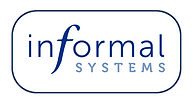
SMT2022 Sponsors



Important Dates
- Camera-ready papers: August 1, 2022 AoE (Anywhere on Earth)
- Abstract submission: May 22, 2022
May 15, 2022AoE (Anywhere on Earth) - Paper submission: May 24, 2022
May 15, 2022AoE (Anywhere on Earth) - Notification: June 20, 2022
June 24, 2022 - Workshop: August 11-12, 2022
News
- Thanks to our generous sponsors, we offer three travel grants of 1000
USD each to students having a paper accepted to the workshop and with
limited travel funding.
To apply for the grants, send the chairs
antti.hyvarinen@gmail.com
and david.deharbe@clearsy.com
the following information by Thursday, June 30 midnight CET:
- Are you an author of a talk at SMT or FLoC
- Are you a student (e.g., PhD or master's)
- Your academic advisor (if student)
- Your academic institution
- Our invited speaker is Aina Niemetz. In addition we will have a panel discussion in part to celebrate the 20th anniversary of the workshop.
Call For Papers
The CFP can be found here.
Scope and Topics of Interest
Background
Determining the satisfiability of first-order formulas modulo background theories, known as the Satisfiability Modulo Theories (SMT) problem, has proved to be an enabling technology for verification, synthesis, test generation, compiler optimization, scheduling, and other areas. The success of SMT techniques depends on the development of both domain-specific decision procedures for each background theory (e.g., linear arithmetic, the theory of arrays, or the theory of bit-vectors) and combination methods that allow one to obtain more versatile SMT tools, usually leveraging Boolean satisfiability (SAT) solvers. These ingredients together make SMT techniques well-suited for use in larger automated reasoning and verification efforts.
Aims and Scope
The aim of the workshop is to bring together researchers and users of SMT tools and techniques. Relevant topics include but are not limited to:
- Decision procedures and theories of interest
- Combinations of decision procedures
- Novel implementation techniques
- Benchmarks and evaluation methodologies
- Applications and case studies
- Theoretical results
Papers on pragmatic aspects of implementing and using SMT tools, as well as novel applications of SMT, are especially encouraged.
More information about the SMT workshop series can be found on The International Workshop on Satisfiability Modulo Theories Website.